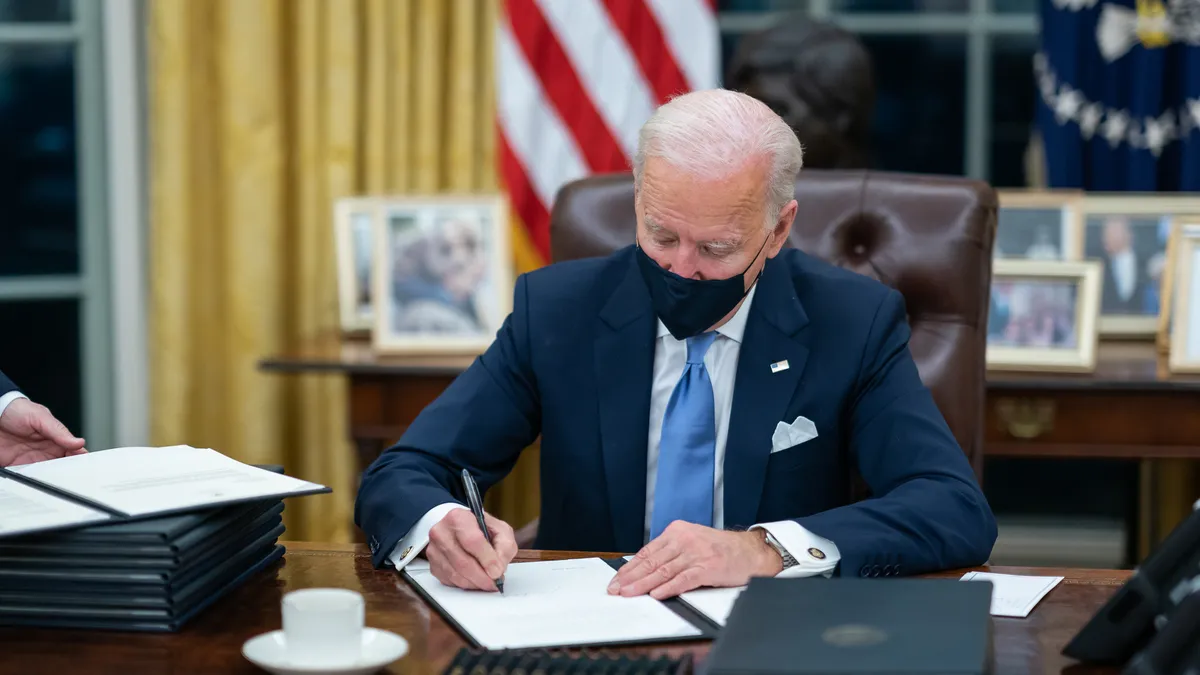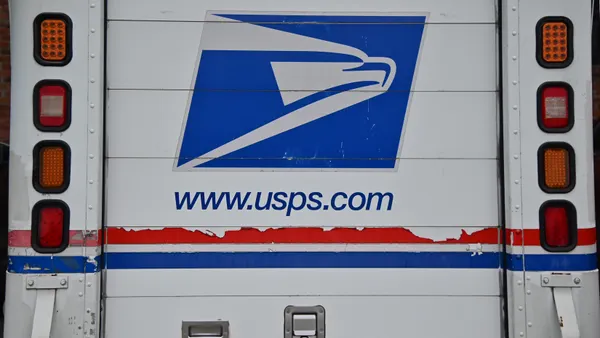Dive Brief:
- President Joe Biden signed into law Thursday H.R. 1319, titled the American Rescue Plan Act of 2021, signaling another wave of federal response to the COVID-19 pandemic.
- The law extends the tax credit for eligible employers that voluntarily provide paid leave under the Families First Coronavirus Response Act (FFCRA). The credit covers 100% of qualifying wages for FFCRA leave provided between April 1, 2021, and Sept. 30, 2021, and the qualifying reasons for taking leave are expanded to include leave taken to receive a COVID-19 vaccination or to recover from an injury, disability, illness or condition related to receiving a vaccine. The maximum tax credit is increased to $200 per day per employee or $12,000 per employee in aggregate, and the employee does not need to take 10 days of unpaid leave to qualify.
- Other provisions include payment assistance toward COBRA premiums for certain eligible employees; stimulus checks for individuals earning less than $75,000 per year and married couples earning less than $150,000 per year; increased unemployment benefits; an increased child tax credit; and monetary aid to certain business sectors.
Dive Insight:
Though it expands the tax credit for voluntarily providing FFCRA leave into the fall, the law falls short of the initial blueprint for the FFCRA published by President Joe Biden in the weeks leading up to his inauguration. In January, Biden called on Congress to reinstate the law's paid leave mandate and eliminate the exemption for employers with more than 500 employees or less than 50 employees.
On other fronts, the law does not include a provision to increase the federal minimum wage to $15 per hour, which was cut from the bill during the legislative process. Biden made the issue a part of his labor policy platform in the runup to the 2020 Presidential Election and also supported the elimination of the federal subminimum wage for workers with disabilities.
The COBRA provision of the law is notable for employers, according to an article written by attorneys with management-side firm Morgan Lewis, in part because it requires employers to update COBRA notices to individuals eligible for premium assistance. Additionally, employers maintaining the applicable health plan are eligible for a tax credit.
"As we wait for the agencies to issue model notices, employers should take swift action and work closely with their COBRA administrators to identify any Eligible Individuals who will need to be provided notification of the COBRA premium subsidy," the Morgan Lewis attorneys wrote.
The COBRA premium requirement becomes effective April 1, 2021, but "it may reach backwards to cover employees who are still on COBRA," said Jim Paretti, shareholder at Littler Mendelson.
"There will also be new notice requirements for plan sponsors," Paretti added. "We don't yet know what the precise details of this will look like, but again, we expect guidance shortly, and employers should be mindful to work with their benefits administrators and counsel to ensure compliance."













